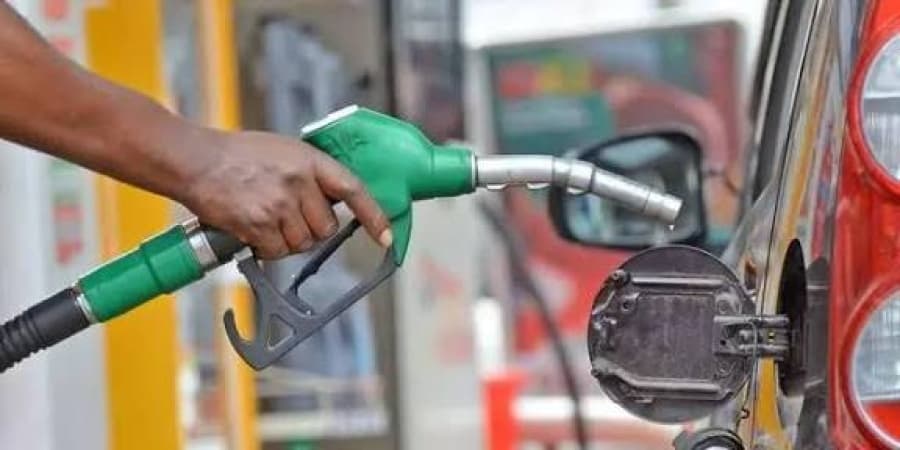
Car being fuelled with petrol
Major marketers of petroleum products yesterday warned that the introduction of the 15 per cent import duty on petrol and diesel could signal another round of fuel price increase.
The approval of the duty by President Bola Ahmed Tinubu is causing division in the downstream sector of the oil and gas industry with some economic experts applauding the move as a welcome development aimed at discouraging importation of petroleum products and supporting local refineries, while others express worry over likely hike in prices of petroleum products.
The president’s approval was contained in a letter with reference no: PRES8197/HAGF/100/71/FIRS/40/88-2/NMDPRA/2, dated 21 October.
The letter was addressed to the Attorney General of the Federation and Minister of Justice, Federal Inland Revenue Service (FIRS) and the Nigerian Midstream and Downstream Petroleum Regulatory Authority (NMDPRA).
The letter, titled ‘Re: introduction of a market-responsive import tariff framework on Premium Motor Spirit (PMS) & Diesel,’ was signed by Damilotun Aderemi, the Private Secretary to the President.
The president’s approval followed a request by the FIRS Chairman, Zacch Adedeji for the government to apply the tariff to align import costs with domestic realities.
Adedeji said the duty, applied to the Cost, Insurance, and Freight (CIF) value, is expected to increase petrol prices by approximately N99.72 per litre.
“The core objective of this initiative is to operationalize crude transactions in local currency, strengthen local refining capacity, and ensure a stable, affordable supply of petroleum products across Nigeria aligning with Your Excellency’s Renewed Hope Agenda for security and fiscal sustainability,” the FIRS said.
Adedeji stated that the current price difference between locally refined products and import parity pricing has created instability in the market.
“While domestic refining of petrol has begun to increase and diesel sufficiency has been achieved, price instability persists, partly due to the misalignment between local refiners and marketers,” he wrote.
According to him, the government’s responsibility is two-fold: to protect consumers and domestic producers from unfair pricing practices and collusion, while simultaneously ensuring a level playing field that allows domestic refiners to cover costs and attract continued investment.
According to projections contained in the letter, the 15 per cent import duty could increase the landing cost of petrol by an estimated N99.72 per litre.
“At current CIF levels, this represents an increment of approximately 99.72 per litre, which nudges imported landed costs towards local cost-recovery without choking supply or inflating consumer prices beyond sustainable thresholds.
“Even with this adjustment, estimated Lagos pump prices would remain in the range of N964.72 per litre ($0.62), still significantly below regional averages such as Senegal ($1.76 per litre), Cote d’Ivoire ($1.52 per litre), and Ghana ($1.37 per litre).”
The case for and against importation
Daily Trust reports that since the commencement of operation of the 650,000-barrel per day Dangote Refinery and Petrochemicals, there have been arguments and counter-arguments over continued importation of petroleum products.
While the Dangote Refinery insists that it can meet the local demands, other marketers warned that the development may trigger a new era of fuel price increase at a time Nigerians are already overburdened.
The Nigerian Midstream and Downstream Petroleum Regulatory Authority (NMDPRA) recently revealed that local refineries supplied just 30.79 per cent of the premium motor spirit (PMS), popularly known as petrol, consumed in the country in June 2025.
According to the agency, the average daily petrol supply for the month is 49.277 million litres, with local refineries providing 15.172 million litres, while 34.104 million litres were imported.
In a report to the Federation Revenue Reconciliation Committee dated July 10, 2025, and made available to journalists on Tuesday night, the NMDPRA stated that total petrol supply in June stood at 1.478 billion litres, down 16.42 percent from 1.768 billion litres in May.
It noted that total truck-out volume in June was 1.44 billion litres, compared to 1.678 billion litres in May.
Of the total supply in June, 455.188 million litres came from local refineries, while imports accounted for 1.295 billion litres.
As of today, 67 per cent of fuel consumed locally is still imported despite the insistence by Dangote Refinery that it can meet the local demand.
The Central Bank of Nigeria (CBN) also released a total sum of $1.259bn to oil sector players for the importation of petroleum products and other related items into the country in the first three months of 2025, Daily Trust gathered.
The amount released between the first three months of 2025 is against the backdrop of the insistence by marketers to continue fuel import.
Recently, the Dangote Refinery through its Vice President, Oil and Gas, Mr. Devakumar Edwin disclosed that the refinery currently has over 312 million litres of Premium Motor Spirit (PMS) in its storage tanks, aside from ongoing daily production.
“I have more than 312 million litres of PMS as of today inside my tanks, apart from the production which is coming out every day. Bring your tankers. We will load. Any number of tankers you bring, we’ll load. It’s a challenge I’m throwing today.
“No one can come and tell me I’m not loading. We can load any number of tankers you bring. So, you can see whether I have the capacity to produce or not. We have more than 310 million litres as of now,” he said.
With a processing capacity of 650,000 barrels per day, he said the plant is capable of meeting Nigeria’s entire demand for petrol, diesel (AGO), and aviation fuel (Jet A1), while still exporting nearly 50 per cent of its products.
“This refinery produces about 94 per cent light products — PMS, AGO, and Jet A1 — with only six per cent being heavier by-products like carbon black feedstock. That’s far better than the older Nigerian refineries,” he noted.
‘Imposition of duty will lead to price hike’
While there has not been an official reaction yet from either the Major Energies Marketers’ Association of Nigeria (MEMAN), or the Depot and Petroleum Products Marketers Association of Nigeria (DAPPMAN), some of their members who spoke with our correspondent insisted the fuel import levy would lead to price increase.
“The issue around capacity that Dangote Refinery talked about is contestable and I don’t think the capacity is there yet. So if you are imposing this duty, it means we should be prepared for a new regime of fuel price increase.
“The truth is we are not getting enough from the refinery and we know that when we order from Dangote Refinery, we don’t get it on time,” one of the major marketers who spoke in confidence said.
Speaking with our correspondent, the Managing Director of 11PLC (formerly Mobil), Otunba Tunji Oyebanji said, “15 per cent to the government is a lot of revenue to the government but higher prices for Nigerians.”
President of the Independent Marketers’ Association of Nigeria (IPMAN), Alhaji Abubakar Maigandi, in a chat with our correspondent said the association would make its position known on Monday.
However, a former General Secretary of IPMAN, Mike Osatuyi, welcomed the move which he stated would support investment by the local refineries.
“The purpose is mainly to protect our local refineries. For decades, Nigeria has been known for importation of petroleum products and we are used to it. We are providing employment for the foreign countries at the expense of the economy of Nigeria.
“So Dangote wants to go to 1.4m barrels per day which is going to be the biggest in the whole world. By the time it comes up, then other refineries too are coming up, BUA Refinery too is coming up, all these local refineries need to be protected.
“If we didn’t do what the president has done we would kill the local refineries. So it is a good policy.”
Osatuyi insisted that with the capacity of the Dangote Refinery, the fear of fuel price hike is misplaced, adding that if Dangote does not have the capacity to meet local demand, it would not be exporting to other countries.
“If he is exporting, it means that he has in excess more than what we need but some people have been benefitting from importation and they don’t want it to stop. What the President has done is the best because we need to protect ourselves and not outsiders,” he said.
Professor Rafindadi gives perspective
A member of the Daily Trust’s Board of Economists, Professor Sanusi Aliyu Rafindadi in his intervention said the policy is welcomed but said the government must keep an eye on the market to ensure the intended result is achieved.
He said, “First, taxes/tariffs can be used to encourage local production where competition from imported alternatives threatens the survival of domestic producers.
“In theory, it is part of the so-called infant industry argument, which posits that where domestic industry in developing countries are in their infant stages, allowing them to compete with mature producers in developed countries would be unfair and would hurt their prospects. Therefore imposing tariffs would level-up the playing by increasing the local price of the imported goods in the domestic market.
“Normally, the tariff rate imposed should be the difference in cost of product and distribution between the domestic and foreign producers. This is to equalize the final prices the consumer pays so that the foreign producers do not have any undue advantage over the local infant industry.”
According to him, the approach is more preferred than total ban. He also tasked Dangote to “expand its reach in the domestic market so that the majority distributors can sell at the prices that MRS is currently selling.”
Rafindadi added, “This approach is preferred to total ban in the international trading system. So to the extent that the importers of petroleum products have price advantages that vary Dangote refinery, this policy should be welcomed. However, evidence doesn’t appear to support this.
“In fact to the contrary, Dangote products are already being sold to the final buyers at lower prices than the imported. MRS, which sells Dangote products are cheaper than those of the independent marketers.
“It is therefore difficult to view the approved 15% tariff from this perspective. However, if the government is sold this infant industry argument, then the government must keep an eye on the market, especially the pricing dynamics.
“Since, given its cost structure, the Dangote refinery has been able to sell below the price that other marketers were selling, it should not be the case that following the tariffs, their prices also rise.
“If this happens, then the second perspective, which is revenue motive, will appear more credible. Tariffs, being a potentially great source of revenue for governments, especially when placed on imported products whose local demand is inelastic such as petroleum products, may be politically difficult to justify given the recent history of price responses to the subsidy withdrawal.
“But it is a more plausible basis than the protection of local infant refineries. In summary, the tariff may help governments achieve greater revenue inflows and protect the Dangote refineries and also help Nigerians access the lower fuel prices that the Dangote refineries presently offer.
“To achieve this, the government must keep an eye on the industry to ensure that this 15% is not passed on to the consumers.”
Paul Alaje
On his part, another economist, Dr. Paul Alaje said the import duty would go a long way in protecting local refiners, especially Dangote Refinery and other refineries coming on board.
“It’s a form of protection for local manufacturing because if you look at it the cost of PMS and diesel outside Nigeria now is cheaper than what we are currently buying.
“So if importers go and import and flood the market, what we are currently experiencing in the grains market will happen to us. In the grains market now, many farmers are seriously crying, remember what happened during COVID when Nigeria was able to provide basic food, it is because we had sufficient grains and there were reserves.
“Imagine, those reserves were not functional, what would we have done? “So this 15% is to discourage importation of such products. Government will make USD available through the CBN but when such products get into Nigeria, they will be properly detached and revenue will go into the government.
“We are coming from a regime where we were paying subsidies to a regime where we are collecting revenue in taxes from those that are importing.
“My argument has been that before you remove subsidy make sure we have functional refineries because when there is no functional refinery and you are still importing it, it will further put pressure on our hard-earned currency.”
Asked if the import duty would not trigger price increase, he said, “I have not seen queues in filling stations. The only way to juxtapose it is when I start seeing queues and our demands are not met. As of today, I have not seen queues.”
Importers may transfer cost to consumers – Petroleum Economist
Speaking with Daily Trust, Wumi Iledare, a Professor Emeritus of Petroleum Economics, said President Bola Ahmed Tinubu’s approval of a 15% import duty on petrol and diesel represents a strategic inflection point in Nigeria’s downstream petroleum policy.
He said the intent is unmistakable to protect local refineries, reduce import dependency, strengthen the naira-based oil economy, and foster a more disciplined market environment.
“From a petroleum economics standpoint, the measure is both protective and corrective—a fiscal instrument designed to create a level playing field for domestic refiners such as Dangote and the NNPCL facilities undergoing rehabilitation. It also promises additional revenue for the government and potential forex savings through reduced importation.”
He, however, said the move is not without its near-term challenges as importers will likely transfer the 15% duty to consumers, pushing pump prices higher and heightening inflationary pressures.
“The risk of market concentration also looms if competitive safeguards are weak. Regionally, Nigeria’s petrol prices (N650–N720/litre) remain below those of Benin (N900), Niger (N880), Cameroon (N1,000), and Ghana (N1,200). But as prices converge, border control and price-risk management become imperative to prevent arbitrage and smuggling reversals.
He said if transparently implemented, this policy could accelerate Nigeria’s journey from import dependence to refining self-sufficiency.
“But success depends on governance integrity guided by the Quadruple “E” principles — Efficiency, Effectiveness, Ethics, and Equity. Sound energy policy must balance protection with competition and equity with efficiency,” he added.
On his part, Olabode Sowunmi, CEO of Cabtree Limited and Chairman of the Hydrogen and New Energy Committee of the Nigerian Gas Association (NGA) also warned that the policy may cause fuel price increase.
He said, “Have we asked ourselves why petrol or diesel refined in Nigeria cost more than the same product refined elsewhere and shipped to Nigeria?
“Except we can show that foreign refiners are selling below their operating costs or foreign governments are providing incentives to make their products cheaper, then it means we have a problem with running businesses that can run optimally, compete globally and price their products fairly. Lastly, this also means fuel price increase. So we may have cost shooting up to N1,500 per liter or something like that.” (Daily Trust, but headline rejigged)
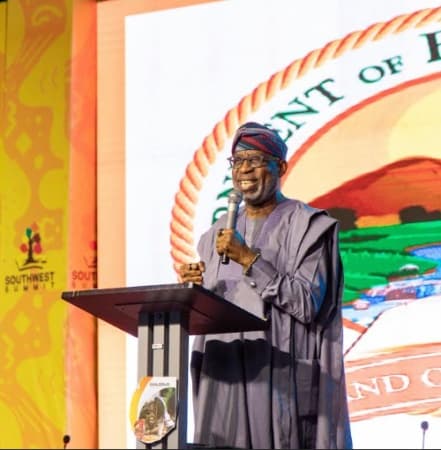
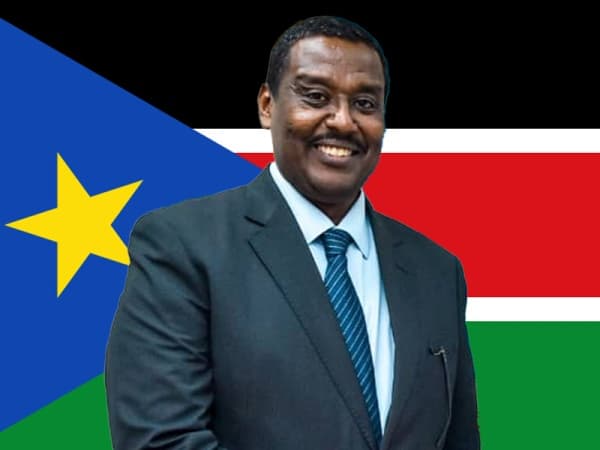




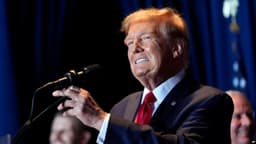







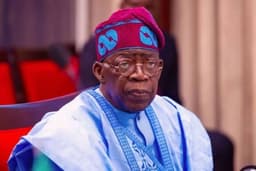
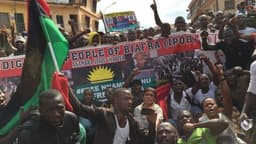

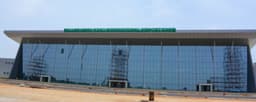


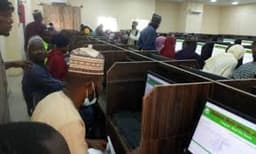






NEWS EXPRESS is Nigeria’s leading online newspaper. Published by Africa’s international award-winning journalist, Mr. Isaac Umunna, NEWS EXPRESS is Nigeria’s first truly professional online daily newspaper. It is published from Lagos, Nigeria’s economic and media hub, and has a provision for occasional special print editions. Thanks to our vast network of sources and dedicated team of professional journalists and contributors spread across Nigeria and overseas, NEWS EXPRESS has become synonymous with newsbreaks and exclusive stories from around the world.